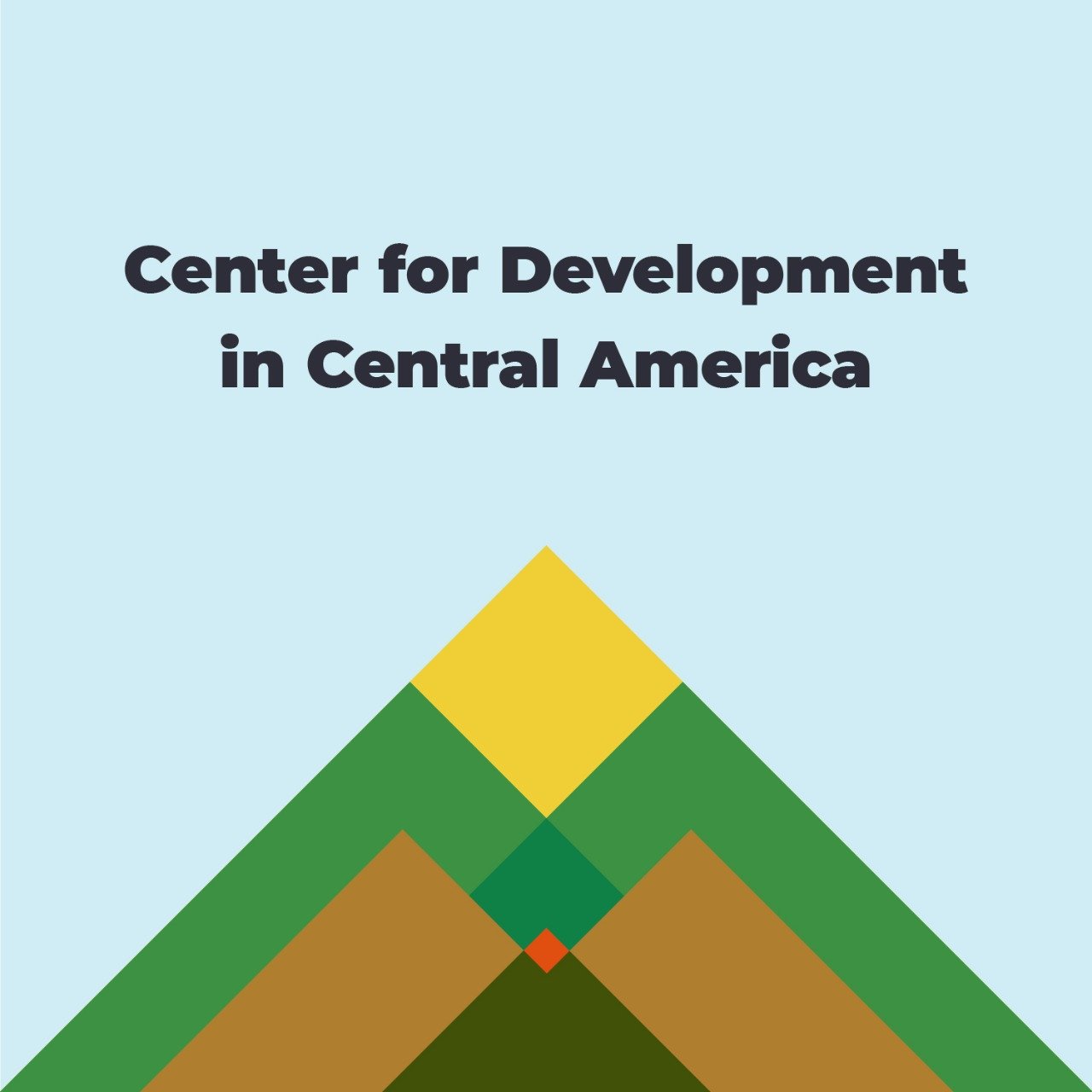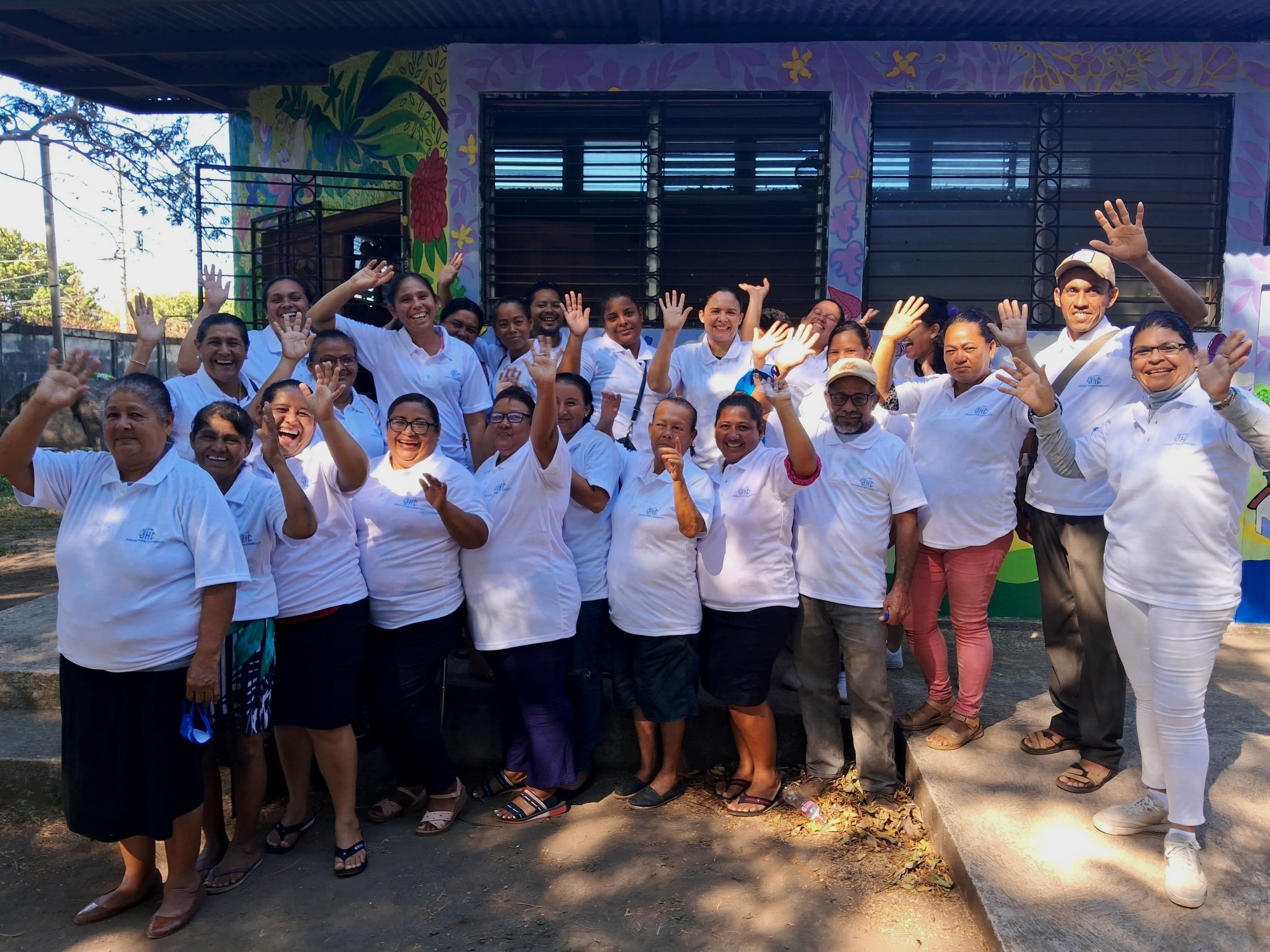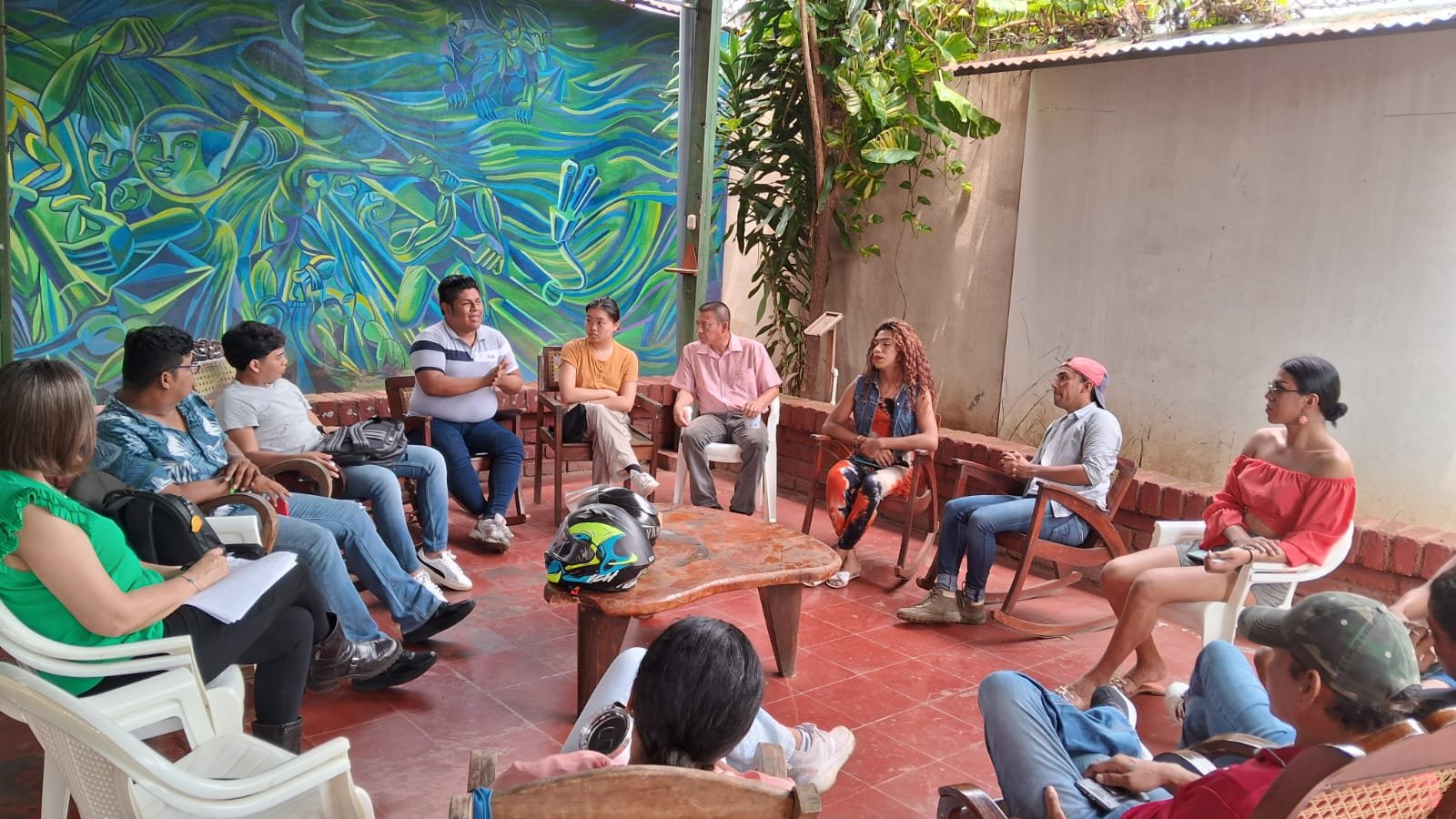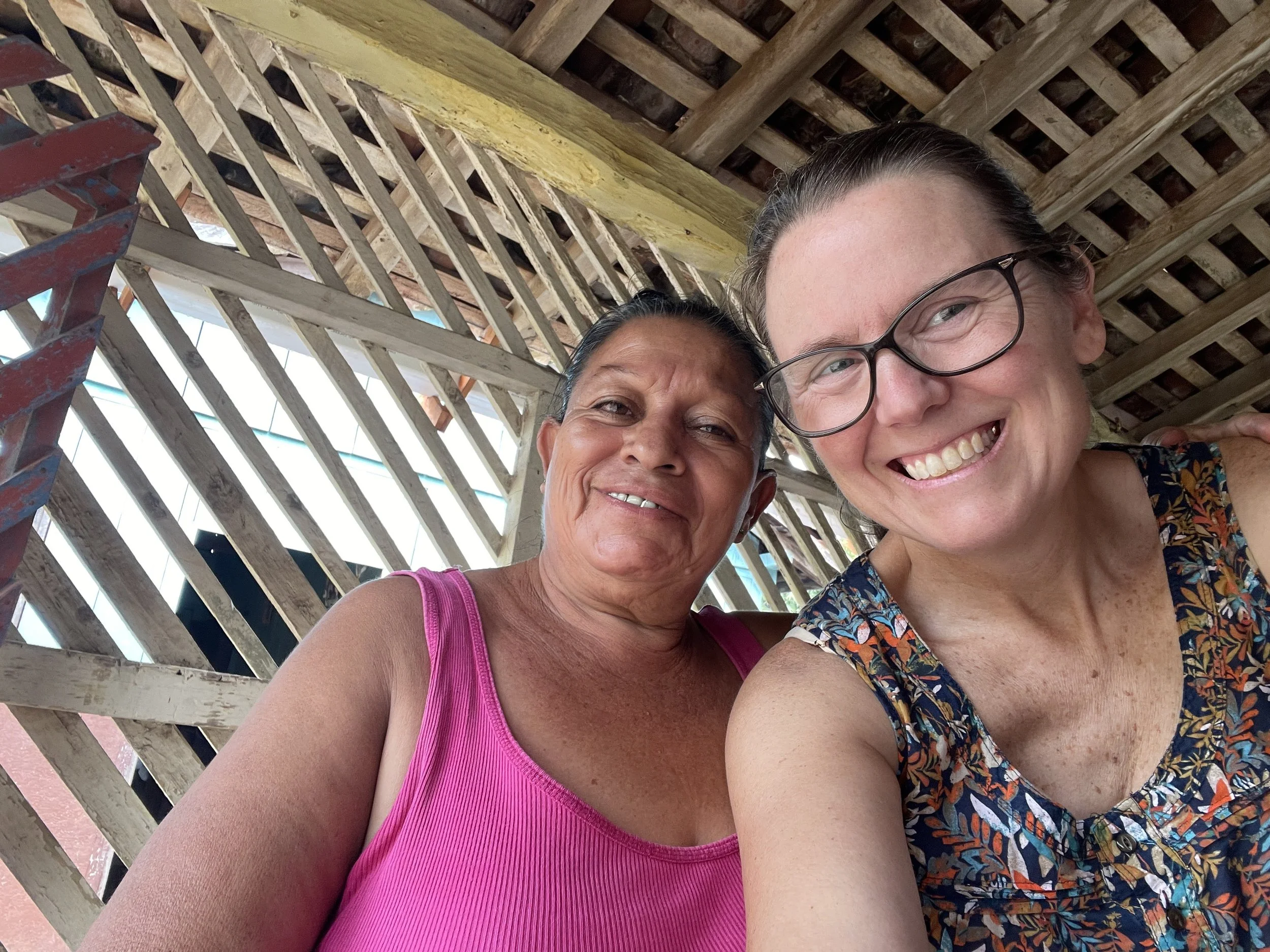Where will we be at 50?
The Vision of JHC-CDCA for 2029
We’re celebrating a year of anniversaries! The Jubilee House Community was founded 45 years ago this month, and the Center for Development in Central America (CDCA) has been in Nicaragua for 30 years!
SO much has changed in that time! We have always said that our work responds to need, and we are more aware than ever that we must adapt to meet the changing needs of the communities where we work.
Recently, we spent some time looking at our long-term vision and planning our work for the next five years. We are excited, and want you to join us moving forward. So...
Where will the JHC-CDCA be at 50?
Firstly, here are a few things that won’t change:
We remain steadfast in our commitments:
● to the people of Nicaragua
● to work with the poor to help improve their lives
● to carry out projects that arise out of needs identified by communities
● to work toward solutions that come from the communities themselves
● to continue to connect Nicaraguan communities with folks around the world
Our sustainable community development will continue to focus on the areas of Health Care, Education, Sustainable Economic Development and Sustainable Agriculture.
What does that look like for 2029 in each area?
Nueva Vida Clinic Health Promotors 2024
Health Care
Where did we start? The CDCA first began working in Nicaragua in 1994, when neoliberal governments were in power and there was little access to health care for the country’s poor majority. We responded to this immense need by building health centers, hosting medical brigades to see patients, and, following Hurricane Mitch in 1998, setting up a full-time health clinic in Nueva Vida.
Where are we now? When the Sandinista government came back into office in 2007, health care was declared free again, and the government has continually bettered services for its population around the country. As these services have improved and expanded in Ciudad Sandino, the CDCA has focused its health work in areas not currently being covered by the Ministry of Health.
Where are we going? Over the next five years, we plan to help people be healthier, ensure they have access to quality health services, understand their health, and teach healthcare professionals. We will:
● Maintain a strong network of community promoters
● Continue carrying out patient home visits
● Work with the public health care system to ensure integral care for patients
● Ensure access to preventative and restorative dental care, particularly for children
● Accompany and advocate for vulnerable patients
● Educate about health
● Ensure continuation of programs for at-risk youth
● Increase clinic sustainability by rehabilitating the green pharmacy garden
● Connect foreign healthcare workers to the Nicaraguan public system for professional exchanges; host medical volunteers
Education & Solidarity
Volunteers visit local hospital
Where did we start? All aspects of the JHC-CDCA’s work include education, but the focus of our education program is to build solidarity for Nicaragua through the creation of shared understanding and support for the Nicaraguan people.
Where are we now? The Casa Ben Linder is the JHC-CDCA’s education, art, and solidarity center in Managua. The spacious guesthouse not only covers its own costs, but also generates income for other projects by hosting volunteers, groups, and gatherings as well as organizing tours and classes.
Where are we going? Over the next five years, we plan to:
● Continue hosting delegations
● Host individual medical professionals to learn medical Spanish
● Offer Spanish and medical Spanish classes through Casa Ben Linder
● Receive guests at Casa Ben Linder to help fund projects
● Form partnerships to begin restoration of historic murals at Casa Ben Linder
● Continue sharing about Nicaragua and the work of the JHC-CDCA through speaking tours, newsletters, blogs, and social media
Sustainable Economic Development
Meeting of the sexual diversity community
Where did we start? The Nicaraguan economy is driven by the creative economy, consisting of micro and small businesses. Over the past 30 years, the CDCA has helped organize, train, set up and finance many co-ops and start-ups. Today, the Nicaraguan government has established programs to provide financing to micro and small businesses, decreasing the need for dedicated financing for this type of business from the CDCA.
Where are we now? There is still a prominent need to improve family economies. Through our Nueva Vida Clinic programs, we have identified two groups that are asking for support to learn vocational skills with the goal of setting up their own businesses.
Where are we going? The Moms and Toddlers group has requested vocational training to gain skills to set up micro businesses in their homes such as event decoration and sewing. The LGBTQ community – in Nicaragua referred to as the sexual diversity community – has requested a training program geared specifically for them, because many in their community have not participated in available training programs for fear of discrimination.
Over the next five years we will:
● Train classes of 25 moms of toddlers in vocational skills
● Train classes of 25 members of the sexual diversity community as Certified Basic Beauty Technicians
● Install a salon for training use in a house that was donated to the CDCA in Managua
● Enable participants to create their own businesses and become mentors for new students
● Make the salon sustainable through generating funds from clientele
● Continue training cycle
Sustainable Agriculture
Where did we start? Since 1994 the CDCA has worked with small hold Nicaraguan farmers to help them improve income for their families. This has been done by helping them get organic certification in order to receive a better price for their crop, helping them organize into cooperatives to enable them to sell directly to clients, cutting out the middlemen brokers thus ensuring a better price to the growers, and by helping them establish value added chains so that more of the profits in agriculture stay with the farmers. The CDCA has directly contributed to small farmers being able to keep their land even during difficult economic times and after natural disasters, and to the improvement in quality of life for rural farm families, including moving into the middle class.
Where are we now? Today, there are a variety of technical assistance, crop improvement, and financing programs available to farm families from the Nicaraguan government. This has allowed the CDCA to begin to focus its agricultural work on intensive sustainable food production systems that aren’t affected by climate change – Nicaragua is one of the six countries most affected by climate change.
Where are we going? Together with Rotary Clubs, the CDCA has set up 57 small-scale aquaponics systems to grow fish and food sustainably in homes and schools in Ciudad Sandino. This has been so successful that the CDCA is currently seeking funding to install 60 more systems. Each system is capable of growing up to 100 pounds of fish and several hundred pounds of vegetables every six months in a space that is two meters square.
Building on the aquaponics success, the CDCA is further developing scalable intensive agricultural models: moss “bio paint” to absorb CO2 and cool the environment, and mushroom and micro green cultivation.
The CDCA continues to work with rural coffee farmers to provide a market for their organic coffee. Since 2000, the JHC-CDCA has worked with the El Porvenir coffee cooperative, helping liaise with buyers in the U.S. to ensure sale of their coffee production. In 2022, the JHC-CDCA began operating Farmer Shares Coffee, LLC, to market this coffee through subscription sales in the U.S. This work has grown to include Las Diosas, a peasant feminist cooperative that grows organic and Fair Trade coffee. Sales from the coffee not only support the co-ops directly, but Farmer Shares Coffee proceeds support projects in these cooperatives and communities, as well as other CDCA projects.
Over the next five years we will:
● Continue the Farmer Shares Coffee project and increase sales volume annually
● Liaise with El Porvenir to improve access to transport, electricity, water, and health care for their community
● Train 60 families in aquaponics and nutrition
● Install new 60 aquaponics systems and support the families through the first cycle with technical assistance
● Create a cadre of community members actively supporting their peer families in aquaponics
● Improve our model aquaponics system
● Find ways to replicate the model cheaply and effectively
Who is doing the work?
The vision for the work comes out of the communities, the Board of Directors holds the vision of the organization and guides the direction of the work, and project work is carried out by 20 Nicaraguan staff members, JHC-CDCA support staff, plus a host of volunteers.
We need YOU!
We can stretch a penny further than just about anybody we know – but money is needed to make all this good work happen, and we need your help! We can not do any of this without YOU. On August 1st, we are launching
Fundraiser for CDCA Nicaragua
Our goal is to raise $50,000 for the general budget to jumpstart the CDCA’s next five years.
We need you to:
● Set up a recurring donation online or increase an existing recurring donation
● Donate stock
● Donate your IRA required minimum distribution
● Set up planned giving - put us in your will
● Encourage others to give
THANK YOU!
The Center for Development in Central America (CDCA) is a project of the Jubilee House Community, Inc, a 501(c)(3) and all donations are tax-deductible.
Checks can be mailed to:
CDCA
℅ 4376 Pennington Rd
Rock Hill, SC 29732-8159
Online donations can be made:https://www.jhc-cdca.org/donate-now








